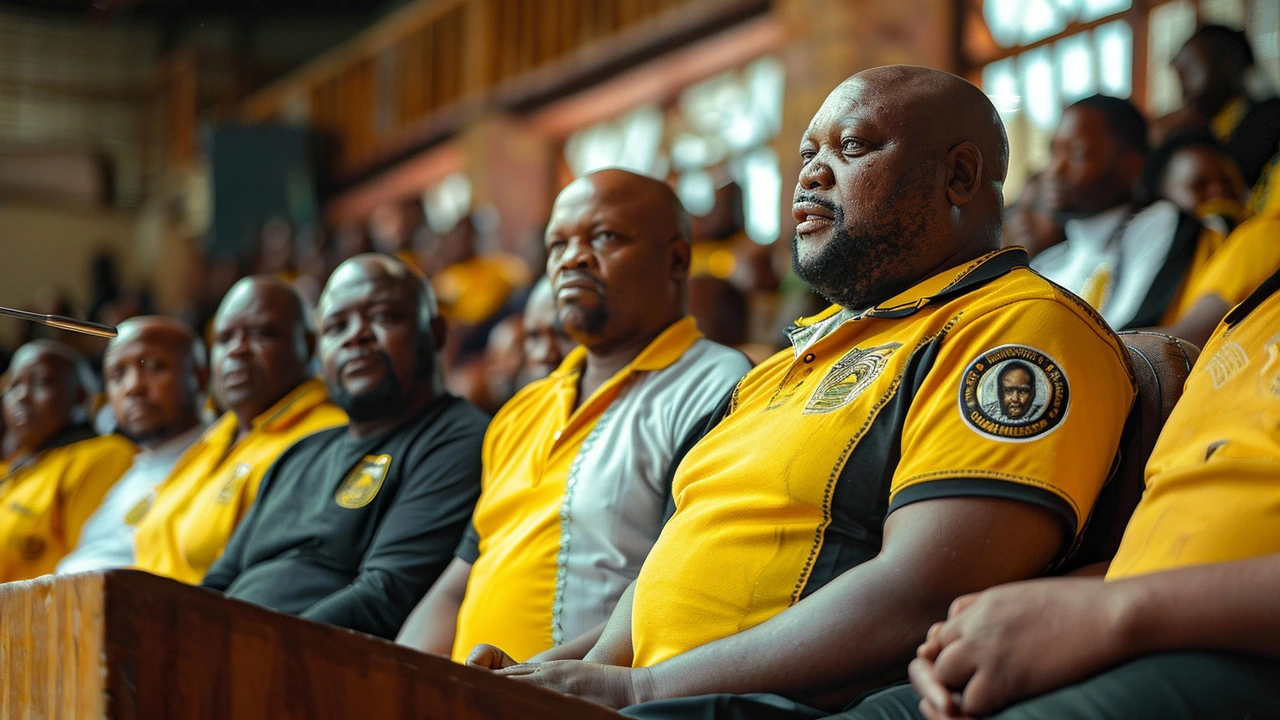In the heat of ongoing political rivalries in South Africa, the African National Congress (ANC) in the Moses Mabhida region of KwaZulu-Natal is bolstering its efforts to maintain its foothold. Recent developments indicate an intensified electoral campaign aimed at countering the rising influence of the uMkhonto we Sizwe Party (MKP). This strategic political maneuver comes at a time when loyalty among the electorate appears increasingly fluid amidst the evolving socio-political landscape of the region.
Revitalization of ANC Campaign Efforts
The ANC's rejuvenated approach was spearheaded by Mzimkhulu Thebolla, the regional chairperson for the ANC in Moses Mabhida and the mayor of Msunduzi Municipality. Thebolla, alongside other prominent regional mayors such as Nhlakanipho Ntombela, Bonginkosi Ngcongo, and Mxolisi Mkhize, has initiated a robust campaign to reconnect with the community and reinforce the ANC’s accomplishments. The focus has sharply turned on their sustained initiatives in infrastructure development, including housing and electrical provisions which have been pivotal in rural and urban amalgamations across the region.
The campaign is not merely a showcase of past achievements but a strategic push against MKP’s endeavors to sway ANC's base. The recent politic landscape sees MKP attempting to carve a niche amongst traditionally ANC-aligned voters, making the upcoming elections a potentially tight race with high stakes.
Addressing the Economic Concerns Related to Legislative Relocation
Another significant aspect of the ANC’s campaign strategy involves addressing the proposals by the Inkatha Freedom Party (IFP) to relocate the provincial legislature from Pietermaritzburg to Ulundi. Thebolla has articulated concerns regarding the economic repercussions such a move could herald for the region. He argues that relocating the legislative body could lead to diminished economic activity in Pietermaritzburg, which could alienate the electorate and drive them towards alternative parties like the IFP or even the MKP. These developments are positioned as detrimental to the continued economic stability and growth of the Moses Mabhida region.
In his statements, Thebolla emphasized that the economic implications of such strategic legislative movements could resonate with the voters’ direct and indirect experiences of economic enhancement or decline. By drawing attention to these potential consequences, the ANC aims to consolidate its base by underlining the risks associated with changes proposed by rival political factions.
Community Engagement and Voter Education
Integral to their revitalized campaign, the ANC has increased its engagement with the community through various forums and outreach programs. These initiatives are designed to educate voters about the tangible benefits brought about by the ANC’s governance, such as improvements in local infrastructure, healthcare, and education services, which are critical issues for the residents of the Moses Mabhida region. Additionally, they are countering misinformation and clarifications on the regional developmental strategies criticized or misinterpreted by opposition parties.
The ongoing community dialogues have also provided a platform for discussing national issues that impact regional dynamics, such as unemployment rates, national security measures, and economic policies affecting local industries. By bridging the gap between national concerns and their regional implications, the ANC hopes to strengthen voter confidence in their capability to manage both realms effectively.
The ANC's strategic electoral campaign in the Moses Mabhida region showcases a blend of reaffirmation of past commitments and a responsive approach towards current political challenges. As they navigate through heightened political competition, particularly from the MKP and IFP, their focused efforts on infrastructure development and economic stability are pitched to resonate deeply with voter concerns, making this an election of critical importance for the leadership and direction of the region.
